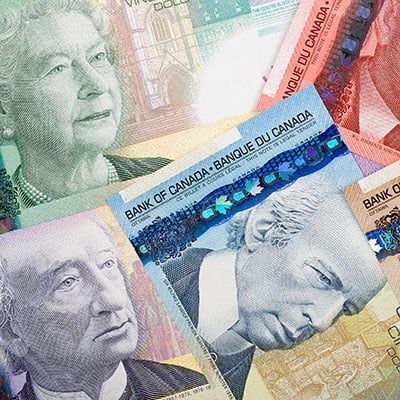Analysts say high prices are here to stay There are several factors at play in the soaring gas prices consumers are seeing, says Patrick De Haan, petroleum analyst for GasBuddy in Chicago, Ill.
When everything shut down in the early days of the pandemic, demand for gas dropped, so suppliers cut back on production. But with the introduction of vaccines, Canadians were ready to get back on the road. Unfortunately, by then, the supply wasn’t there.
“COVID-19 is a big part of this,” says De Haan. “In some ways, that permanently changed the landscape. We’ve seen oil refineries shut down and they’re not necessarily going to come back.”
De Haan notes prices have recently dropped from their mid-June highs — but a return to normalcy “may take some time.”
How much time?
“I don’t see us getting back to norms for potentially a year or two, maybe three,” says De Haan. “Oil is cyclical, and high prices will eventually lead to lower prices, which will eventually lead to higher prices. There’s never a perfect balance.”
Good credit is important for your financial health, and Borrowell can help you take a turn for the better. Sign up for Borrowell to get your credit score and credit report for free!
Sign up
Canadians are watching prices creep with concern The idea of dealing with high gas prices for years to come may send some into a tailspin.
In a poll conducted by the Canadian Automobile Association (CAA) late last year, an overwhelming 84 per cent of drivers rated themselves as either very concerned (46 per cent) or somewhat concerned (38 per cent) about rising gas prices.
Researchers then asked if drivers were planning to change their habits due to fuel prices. Seventy per cent expected to be impacted in some way, with 15 per cent saying it would change their habits “a lot,” 19 per cent anticipating “somewhat” of a change and 36 per cent planning “a little” change.
Kristine D’Arbelles, the senior director of public affairs for CAA in Ottawa, says the survey results only reflect how Canadians felt about gas prices in late 2021, and not how they’ll feel if prices keep going up.
“I can’t look into my crystal ball and tell you exactly how high it’s going to go, but if it does continue to rise, these [poll] numbers … their value is just going to go up,” says D’Arbelles.
A more recent survey from CAA’s South Central Ontario branch reveals that while many drivers in the region are planning a road trip this summer, 64 per cent say their plans are likely to be impacted by high gas prices. Many respondents plan to limit the number of trips they’ll take, drive shorter distances or adjust their budgets to accommodate fuel prices.
Practical ways to cut down your costs Obviously, the best way to avoid high gas prices is to cut back on your driving. Consider making some trips by public transit, by bicycle or on foot, especially if you live in an urban area.
But for a good percentage of Canadians, driving less may not be realistic, especially if prices stay high as long as De Haan anticipates.
Fortunately, CAA offers simple tips on its website to help drivers get more mileage out of each tank.
They include accelerating gently; avoiding speeding or idling; decreasing drag by removing roof or bike racks when they’re not needed; and keeping up with your regular car maintenance.
While those may not seem like dramatic changes that will impact your gas consumption, D’Arbelles says in combination, they could save drivers up to 20 per cent on fuel in a year.
“On average, if someone spends about $2,000 on gas, if you’re saving 20 per cent … that’s a pretty penny.”
Take, for example, avoiding high speeds. Natural Resources Canada says most vehicles are fuel-efficient between 50 and 80 kilometres per hour, but speeds higher than that increasingly use up more fuel.
At 120 km/h, a car uses 20 per cent more fuel than if it was going 100 km/h. And yet the higher speed would only save a driver two minutes in travel time on a 25-km trip.
With these tips in hand, drivers can hopefully weather surges at the pump until supply can catch up with demand.
“We may be stuck in this higher price era for a little while,” says De Haan. “I do think we will eventually settle back down. But when we do settle down, it’s not going to be to the $1.30, the $1.25/liter mark, it’s still going to be fairly uncomfortable.”
You’re 5 minutes away from the best mortgage Searching for your perfect mortgage shouldn’t be hard.
Homewise is an online brokerage that will negotiate on your behalf with more than 30 big banks and other lenders, completely free, and it only takes five minutes to apply.
If you’re in the market for a new mortgage, or if you’re looking to refinance before interest rates rise again, go to Homewise now and answer a few simple questions to get started.
Disclaimer The content provided on MoneyWise is information to help users become financially literate. It is neither tax nor legal advice, is not intended to be relied upon as a forecast, research or investment advice, and is not a recommendation, offer or solicitation to buy or sell any securities or to adopt any investment strategy. Tax, investment and all other decisions should be made, as appropriate, only with guidance from a qualified professional. We make no representation or warranty of any kind, either express or implied, with respect to the data provided, the timeliness thereof, the results to be obtained by the use thereof or any other matter.
